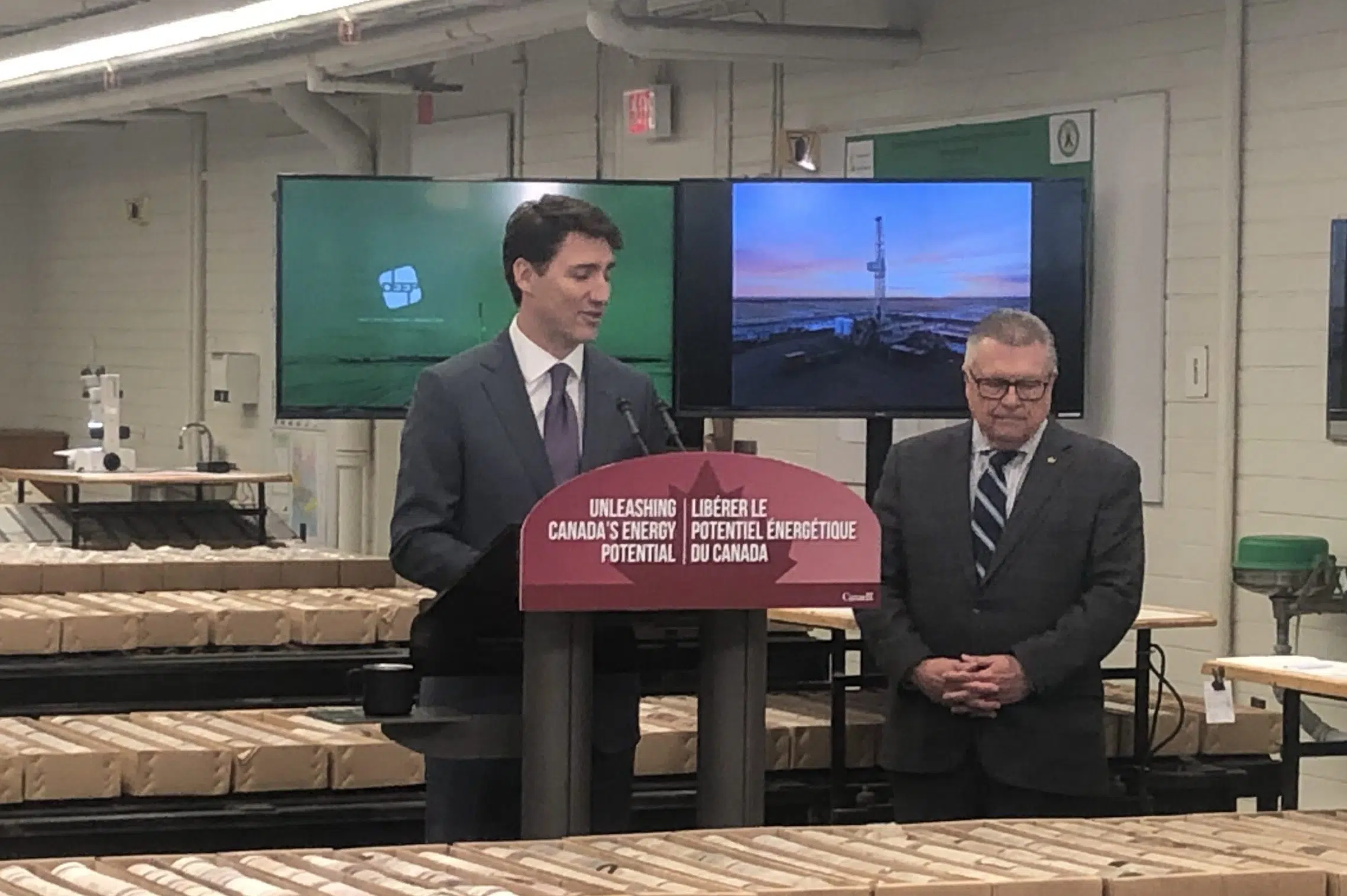Jordan Press, The Canadian Press
OTTAWA — “We are extremely concerned as should be all countries around the world that China is choosing to act arbitrarily whether it is in application of its own justice system to its own citizens and people around the world or whether it’s in its choice to not respect long-standing practices and principles in regard to diplomatic immunity.” — Prime Minister Justin Trudeau (Jan. 14, 2019)
****
It is the oldest rule in global relations: Don’t jail another country’s diplomats.
But when Prime Minister Justin Trudeau accused China of “not respecting long-standing practices and principles” about diplomatic immunity over its decision to detain Michael Kovrig — a diplomat on leave from Global Affairs Canada — the Chinese accused Trudeau of being ignorant about the international convention.
Who is right?
Spoiler alert: The Canadian Press Baloney Meter is a dispassionate examination of political statements culminating in a ranking of accuracy on a scale of “no baloney” to “full of baloney” (complete methodology below).
This one earns a rating of “some baloney,” because there is truth to Trudeau’s statement — but there are more details needed. Here’s why.
The facts
On Dec. 10, Chinese authorities arrested Kovrig on suspicions of “endangering national security,” but have not provided any further details. The arrest came just over a week after Canadian officials arrested Huawei Technologies chief financial officer Meng Wanzhou after an extradition request from the United States — an arrest that has angered China.
Kovrig is an employee of Global Affairs Canada, but was in China working for the International Crisis Group during a leave of absence from the department. He worked as a Canadian diplomat in China between 2014 and 2016.
A spokeswoman for China’s foreign ministry said on Jan. 14 that Kovrig used “an ordinary passport and a business visa” to visit China, according to an English transcript on the ministry’s website.
“He doesn’t enjoy immunity in accordance with the Vienna Convention on Diplomatic Relations and international law,” spokeswoman Hua Chunying said.
The Vienna Convention is an international agreement that outlines how a host government is to treat diplomats and foreign envoys. Global Affairs Canada’s website says the convention protects diplomats and their families from “any form of arrest or detention” and only allows a diplomat to be expelled “in the absence of a waiver of immunity.”
The point is to prevent a country from using its justice system in retaliation for any issue.
The Globe and Mail reported Wednesday the Chinese had asked Kovrig questions about his activities while a diplomat.
The experts
The full thrust of diplomatic immunity only covers the time foreign officers are registered and recognized by host countries, said Gilles Rivard, head of the Retired Heads of Mission Association. Someone on leave from the department, which Kovrig is, wouldn’t be eligible, said Rivard, a former ambassador and senior foreign affairs official.
“You cannot work for an organization and be covered at the same time, unless you have a very special status that I’ve never seen before,” he said.
Immunity also covers actions even after a diplomat leaves their posting, meaning current and former diplomats can’t be investigated for any activities they undertook while they were a diplomat, said Janice Stein, a professor and founding director of the Munk School of Global Affairs and Public Policy at the University of Toronto. An ex-diplomat can be deported for their past actions as a diplomat, she said, but not put in jail.
Section 39 of the Vienna Convention prohibits a diplomat from being questioned about or held for something they did while a diplomat even after their posting comes to a close, said Gar Pardy, a former head of consular affairs. That means the Chinese can’t question Kovrig about what he did when was a diplomat, Pardy said.
“He had immunity and they cannot question him about his duties,” Pardy said.
Immunity is only withdrawn in the very rare circumstance that a “sending country” agrees to a request from the host country, said Ben Rowswell, a former ambassador to Venezuela.
Unless there is additional information the Liberals have about Kovrig’s diplomatic status or his case, the prime minister may be overstating the case for diplomatic immunity, said David Carment, a professor at the Norman Paterson School of International Affairs at Carleton University in Ottawa.
The verdict
Kovrig wouldn’t have diplomatic immunity during his leave from Global Affairs Canada, but experts say his time as a diplomat in China would still be covered, which is why Trudeau’s comments have “some baloney.” Experts say the prime minister likely knows more than he’s letting on, but those important details — and others from the Chinese government — are necessary to fully understand the breadth of Trudeau’s allegation.
Methodology
The Baloney Meter is a project of The Canadian Press that examines the level of accuracy in statements made by politicians. Each claim is researched and assigned a rating based on the following scale:
No baloney — the statement is completely accurate
A little baloney— the statement is mostly accurate but more information is required
Some baloney — the statement is partly accurate but important details are missing
A lot of baloney — the statement is mostly inaccurate but contains elements of truth
Full of baloney — the statement is completely inaccurate







